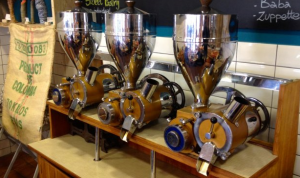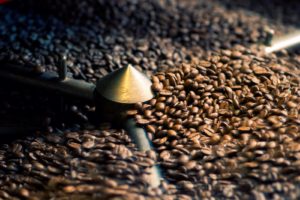Europe seduced by Specialty Coffee? From London to Eastern Europe
 London was a pioneer in a new trend that is growing across Europe. It’s called “specialty coffee” and goes through consumers education, exploration, knowledge, and awareness for quality coffee. It may not be a coincidence if the coffee market in the UK has grown by 12-16% over 2015, based on CoffeeBI’s insights, but it’s a sign of a vibrant environment around coffee in the land of tea.
London was a pioneer in a new trend that is growing across Europe. It’s called “specialty coffee” and goes through consumers education, exploration, knowledge, and awareness for quality coffee. It may not be a coincidence if the coffee market in the UK has grown by 12-16% over 2015, based on CoffeeBI’s insights, but it’s a sign of a vibrant environment around coffee in the land of tea.
However, the love for Specialty Coffee is not only a British trend. Eastern Europe shows a growing interest on it: from Poland, where the fist speciality roasters were established in 2001, to Czech Republic, where a proper Coffee Embassy educates and promotes coffee culture in the country, until the Baltic Republics that host two of the largest Specialty Coffee festivals in the area: Coffee Culture Days Festival and Dark Times coffee festival, both in Lithuania. Coffee consumption in Eastern Europe is still 38% of the whole consumption in Europe, but the attention showed for the quality of coffee is a qualitative index of the interest for the old black drink.
But is Specialty Coffee synonymous of quality?
 Talking about the origin of this name, the Specialty Coffee Association of America (SCAA) mentions an article written in 1998 by Don Holly: “the term ‘specialty coffee’ was first coined by Erna Knutsen, of Knutsen Coffee Ltd., in a speech to the delegates of an international coffee conference in Montreuil, France, in 1978. In essence, the concept was quite simple: special geographic microclimates produce beans with unique flavour profiles, which she referred to as speciality coffees.”
Talking about the origin of this name, the Specialty Coffee Association of America (SCAA) mentions an article written in 1998 by Don Holly: “the term ‘specialty coffee’ was first coined by Erna Knutsen, of Knutsen Coffee Ltd., in a speech to the delegates of an international coffee conference in Montreuil, France, in 1978. In essence, the concept was quite simple: special geographic microclimates produce beans with unique flavour profiles, which she referred to as speciality coffees.”
In Europe new initiatives have been launching thick and fast by coffee lovers. One of the most interesting is the European Coffee Trip, an online magazine who wants to explore the current state of the Specialty Coffee scene in Europe with the goal to create a community of like-minded people to keep discover the culture of Specialty Coffee.



